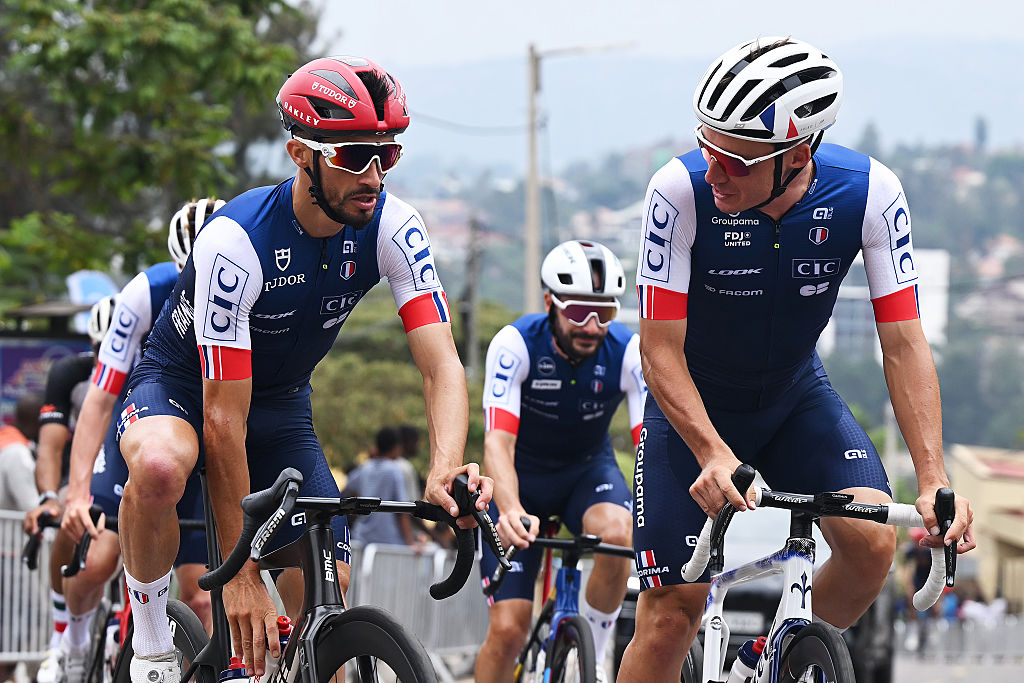Two-time world champion Julian Alaphilippe was on African soil this week and ‘motivated’ by several factors to lead the eight-rider French team in the elite men’s road race on Sunday in Kigali. He used the two weeks after winning Grand Prix Cycliste de Québec until the UCI Road World Championships to recover from an illness and adjust to the higher elevation and heat in Rwanda.
The 33-year-old veteran began the year with an adjustment to a new team, departing the QuickStep programme after 11 years at the WorldTour level and moving to the ProTeam level with Tudor Pro Cycling. He put 61 race days in his legs before the win in Québec, building confidence for a 10th appearance in the elite road race.
You may like
He laughed at the reference to the first time he raised his arms, thinking he had won stage 15 in Carcassonne at the Tour de France, when two other riders ahead had already crossed the finish line. He then finished third overall at Tour of Britain Men and won in Québec. But the momentum was halted when he could not finish the one-day UCI race in Montréal due to illness.
You may like
Louis Barré, Jordan Jegat and Valentin Paret-Peintre 24, who won the Mont Ventoux stage at this year’s Tour.
Acclimating to long distance, high elevation, humidity
As for climate, with a hefty dose of heat and humidity, and geography, a climbing-heavy course that begins at 1,500 metres above sea level, Voeckler said the team would adapt, as many of them have had time to adjust for several days already.
“I haven’t felt at all that they were suffering like those in the time trial. You still have to remember that 1,500 metres is not three millimeters either. They know how to adapt,” he said.
“When you’re racing in Europe at this time of year, you can have surprises, both good and bad, depending on your own feelings. We’ll adapt everyone’s roles on race day and I’m not worried about that.”
Seixas arrived last Tuesday and was part of the mixed relay TTT where he was part of the silver medal performance by France on his 19th birthday. Seixas said the numbers related to the race would add up to making the race extremely difficult, not just the distance, elevation gain, but the altitude of region and weather.
“There are simply the numbers and they don’t lie. Numbers don’t lie,” he emphasised about the 267.5km race and 5,400 metres of elevation gain.
“I’ve been adapting for a while now and I feel like, frankly, it’s getting better and better as the days go by. The heat is OK, but the humidity reinforces the feeling of heat, and that’s it.
“In addition to the heat, humidity, and attitude, there are definitely factors that are more complicated to manage than in Europe. So it’s definitely going to be impacting things.
“For me, it’s going to be a new experience. Let’s say the longest distance I’ve done this year. So, I think Thomas [Voeckler] will soon explain our roles to us, and I’m happy to be able to be here and to be part of the team. And then we’ll see how the distance goes. But in any case, it’s going to be very tough.”
Subscribe to Cyclingnews to unlock unlimited access to our coverage of the first-ever UCI Road World Championships on African soil. Our team of journalists will bring you all the major storylines, in-depth analysis, and more directly from the action in Rwanda as the next rainbow jerseys are decided. Find out more.

